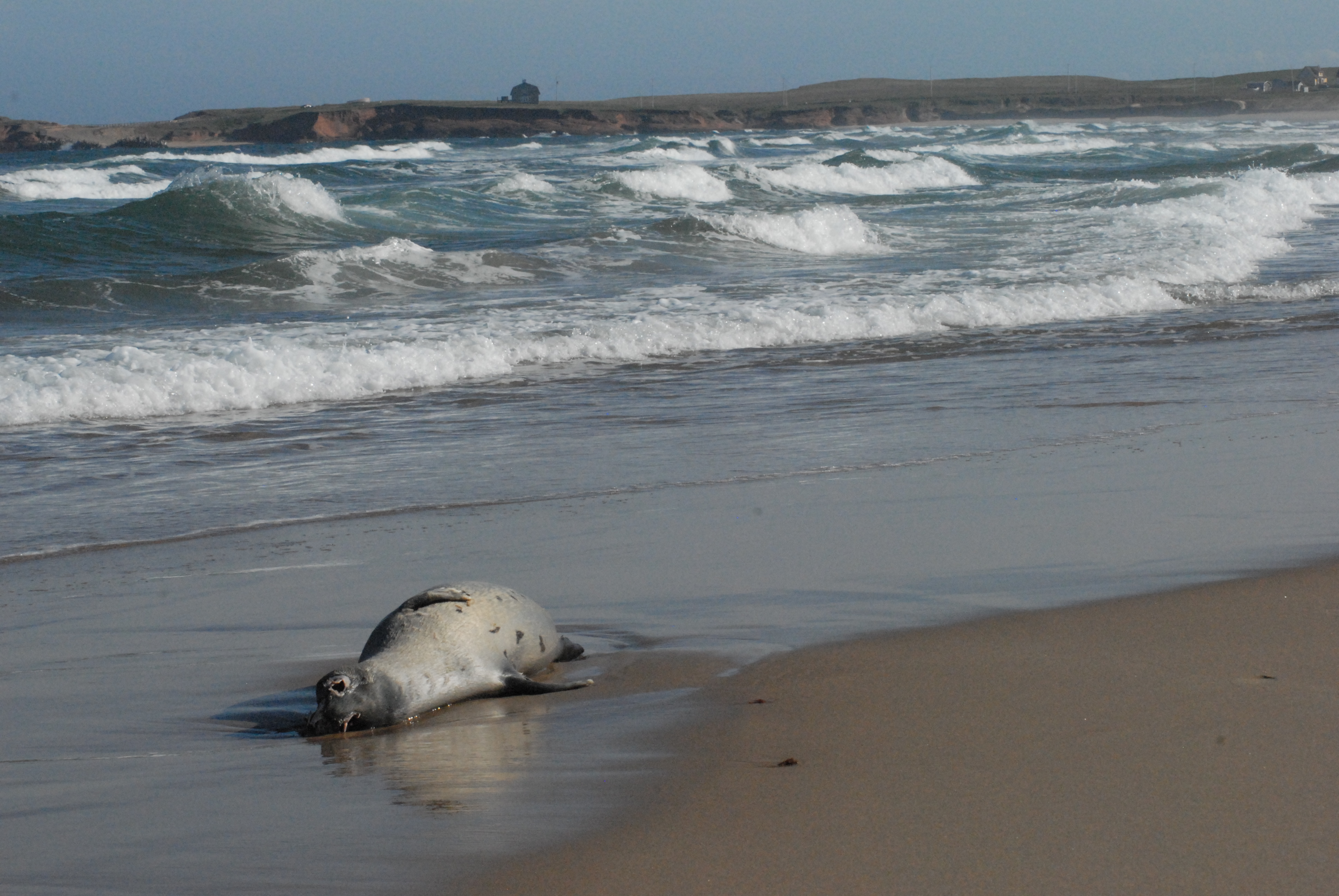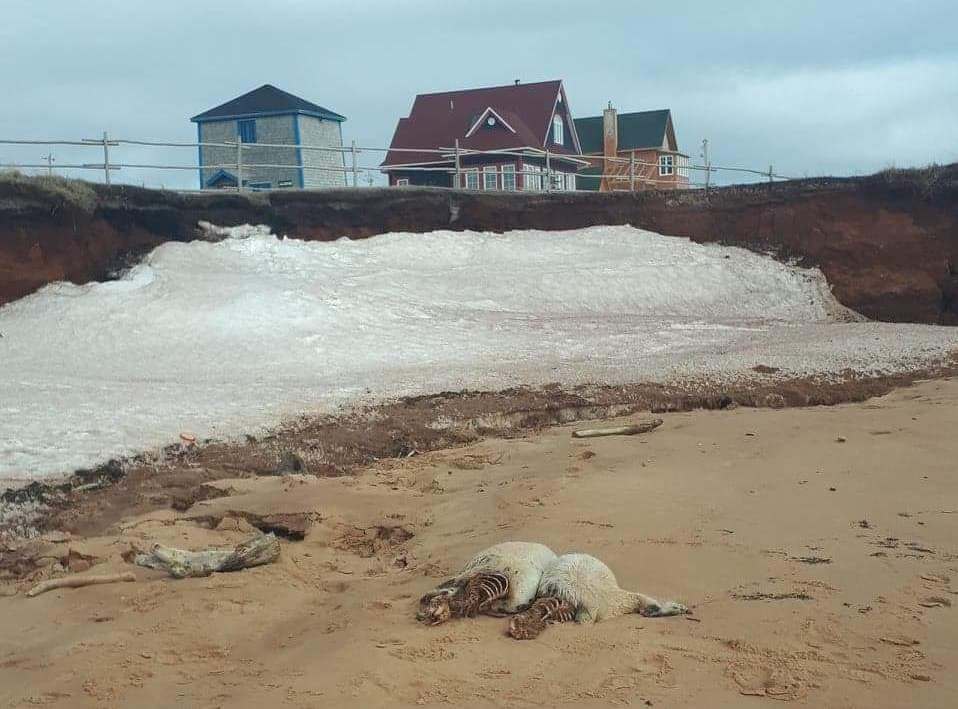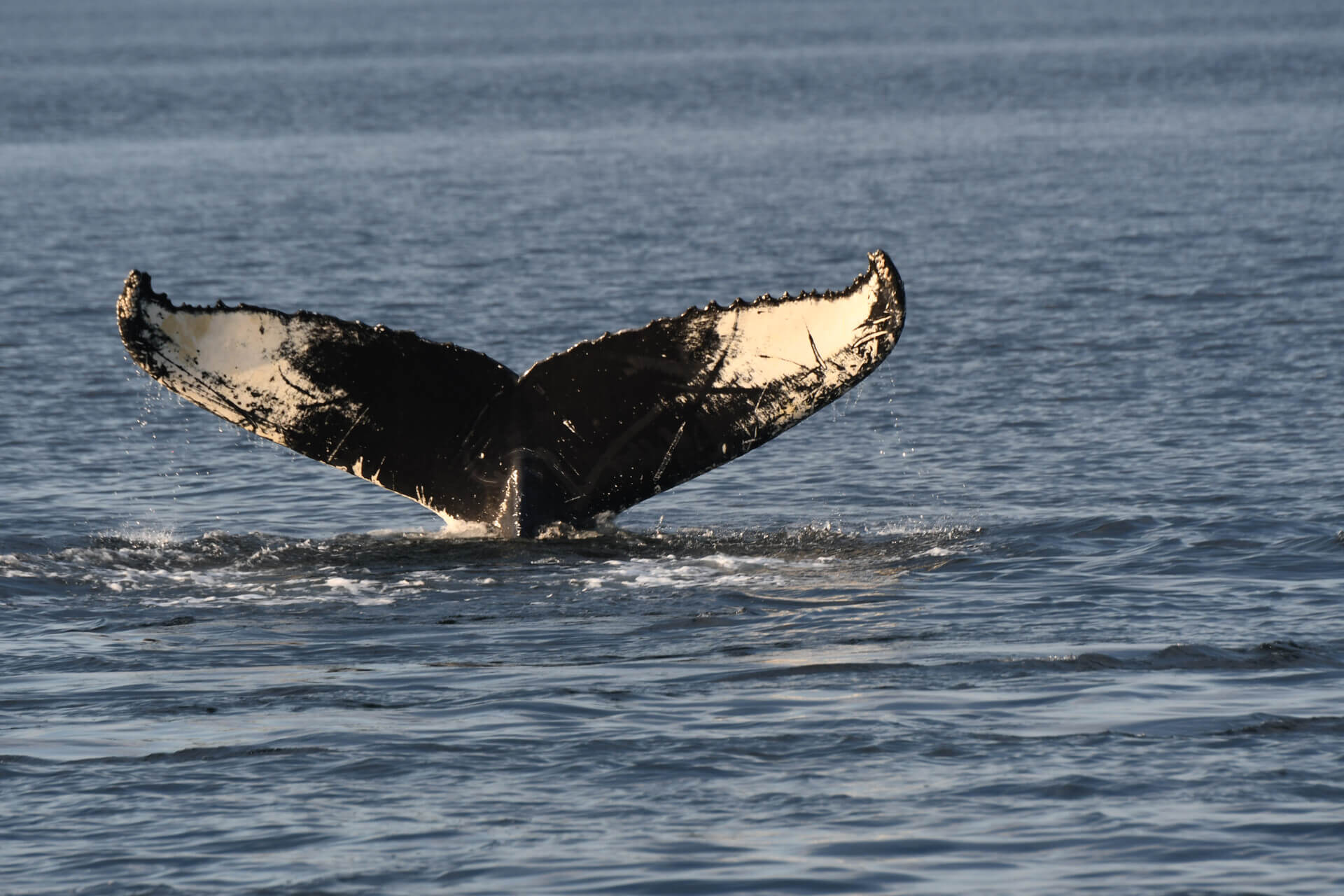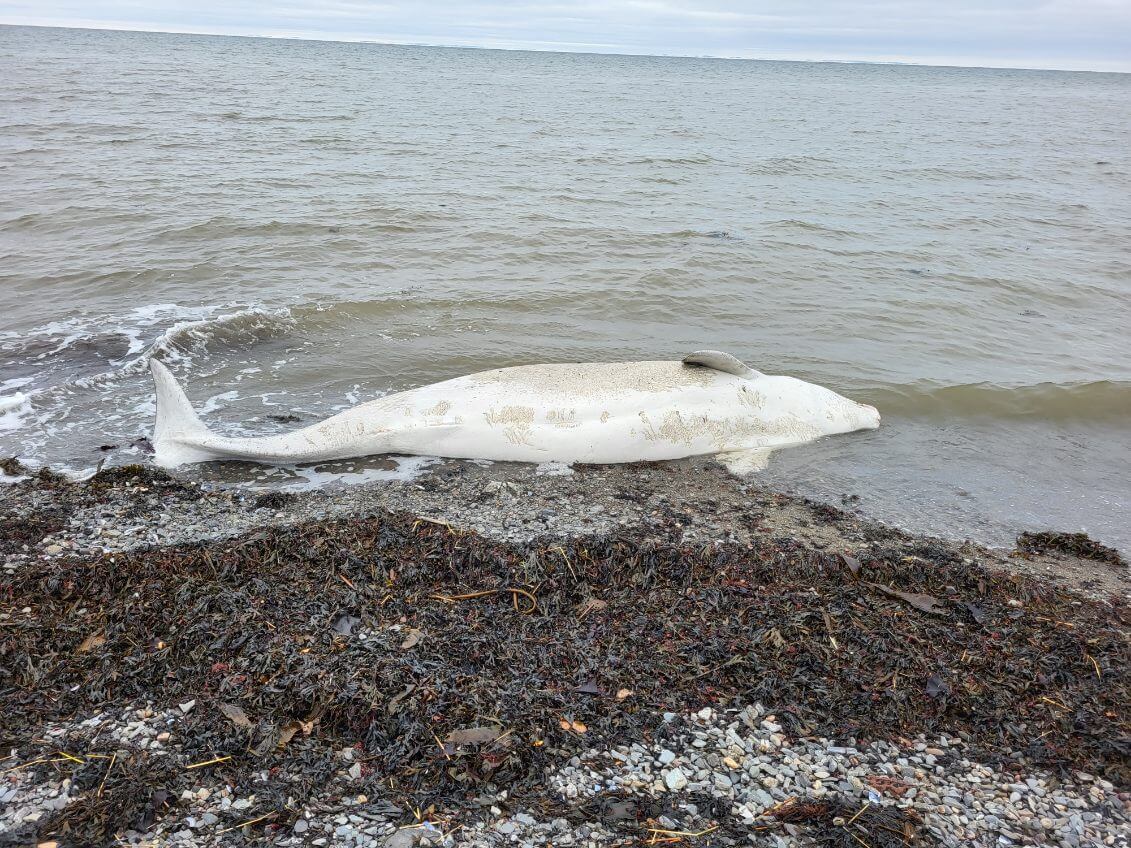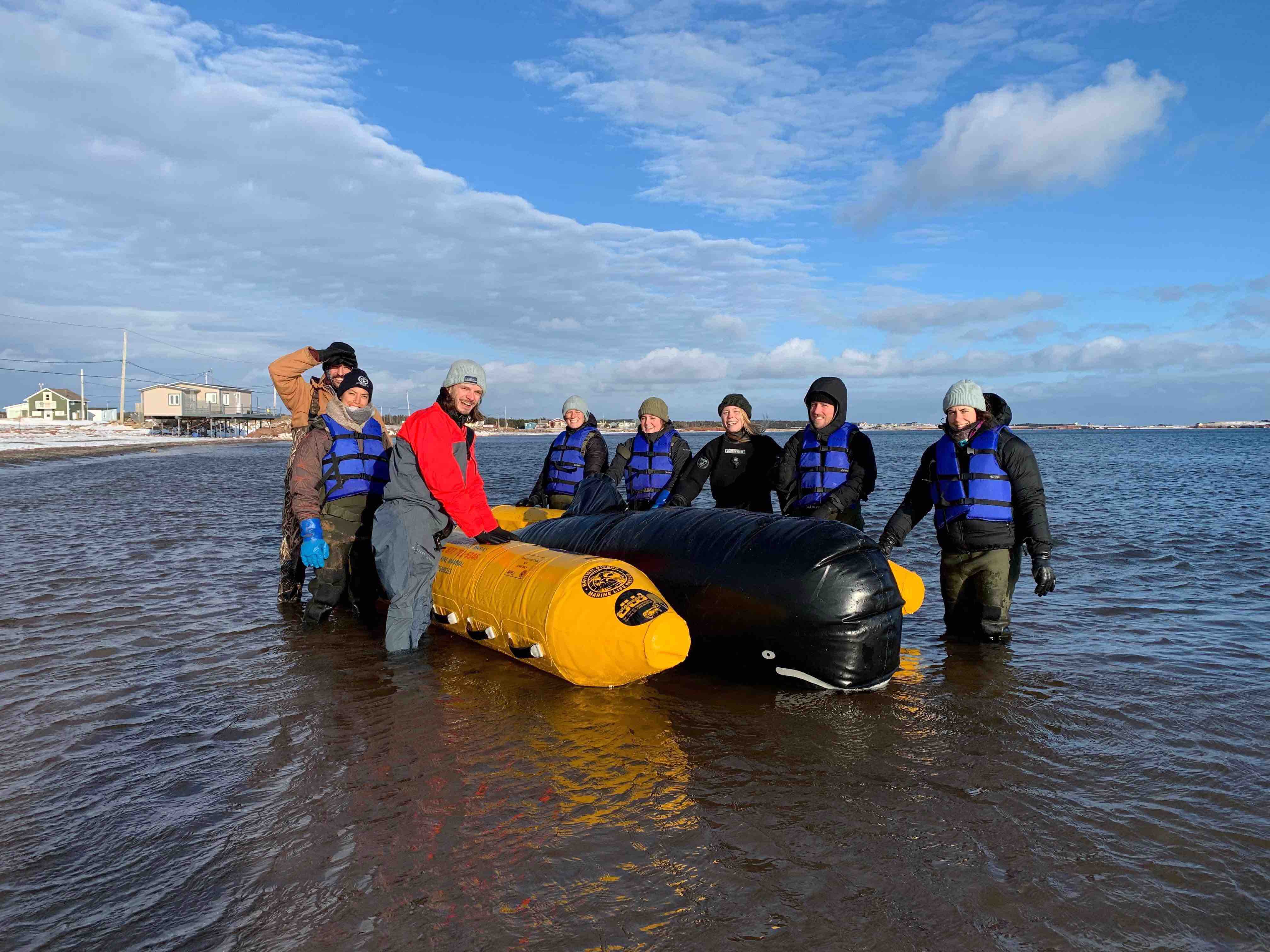Seven seal carcasses were reported in the Magdalen Islands and one in the Bas-Saint-Laurent region over the weekend of April 4. In the archipelago, the large number of carcasses discovered over a short period and over a short distance was a red flag for members of the Quebec Marine Mammal Emergency Response Network (RQUMM) call centre.
Thanks to visual documentation provided by witnesses, we were able to contact seal specialists as early as Saturday afternoon, April 4. These experts were able to respond quickly. The rapid follow-up of cases by the Network and its partners is evidence that, even if the measures in place to prevent the spread of COVID-19 are limiting our response capacities, we are still able to continue our mission.
A number of hypotheses have been put forward to explain these multiple strandings. A herd of harp seals is frequenting the southern part of the Gulf. This year, the ice on which these animals spend much of their time has drifted from west of the archipelago to the south and has recently passed close to the islands. Natural deaths and the end of the hunting season may explain the presence of these carcasses, particularly in the southern part of the archipelago.
Another phenomenon that surprised the witnesses was the absence of a head on nearly all the carcasses discovered (6 of the 7 carcasses confirmed to date were missing their heads). Here again, there is a logical explanation: gammarids and other scavenging organisms attack the carcasses through their orifices in order to make their work easier. This is why the head, with its numerous cavities, is a choice starting point for scavengers.
At the time of writing, the presence of these carcasses was not alarming, though we continue to monitor the situation closely. Without these reports submitted by everyday citizens, we would be unable to collect this information and monitor how the situation evolves. Reporting your sightings is therefore essential!
Live seals on the beaches
The seal pupping season is also well underway. In the next few months, it will not be unusual to come across young seals along the shore. If you do, keep a good distance (at least 50 metres) from the animal, keep your pets on a leash and call us if you have any doubts about the animals’ state of health. Above all, do not take interact with the seal(s) in any way. These animals are wild and can become aggressive if they sense danger. The transmission of diseases between seals, humans and pets is also possible! Take photos or videos while keeping your distance, and contact us promptly at 1-877-722-5346. It should be noted that it is against the law to disturb a seal.


